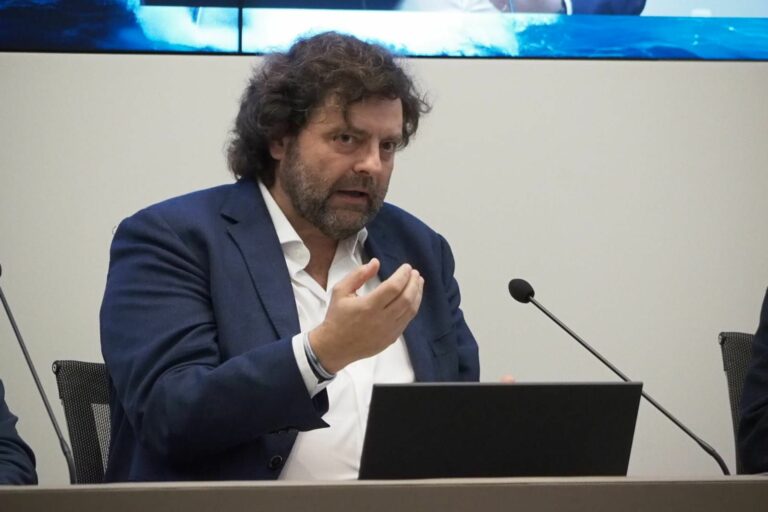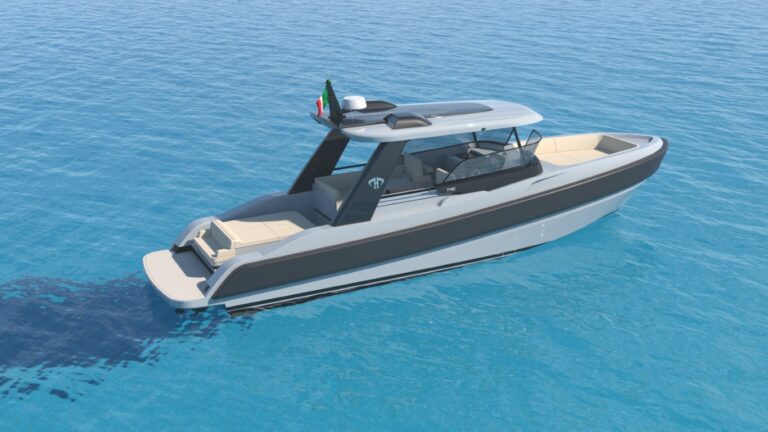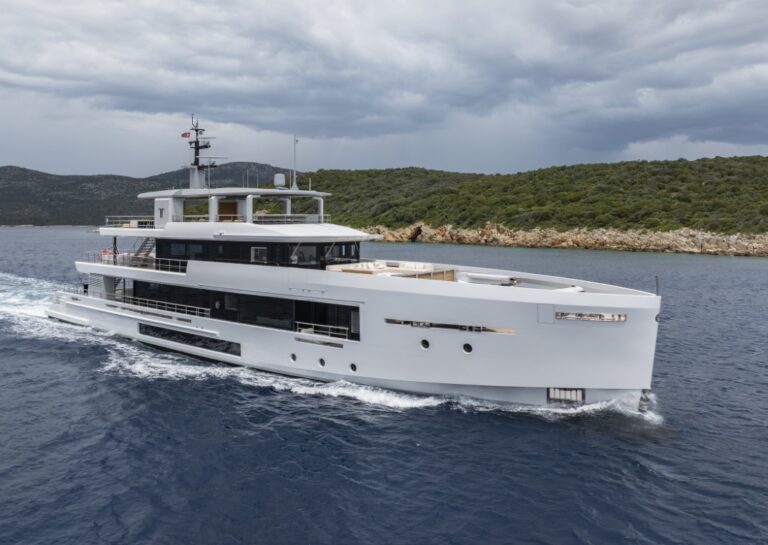Francesco Paszkowski: “Innovations will still take time as hospitality services are evolving rapidly”
The renowned Florentine designer responds to the call for teamwork while acknowledging that competition among shipyards and localism make it difficult to create an ‘Italian system.’

La Spezia – The Blue Design Summit in La Spezia provided SUPER YACHT 24 with the opportunity to converse with another ‘legend’ of yachting design, Francesco Paszkowski, founder of the Francesco Paszkowski Design architecture studio.
Sarcastic, irreverent, and critical in some of his judgments during the panel he participated in, on the sidelines of the event, he made himself available to discuss innovations and experimentation in design, particularly commenting on how these can be combined with the daily management of a pleasure craft and even more so with its construction.
Let’s start with new technologies: from your perspective, what do you see in the future of recreational boating?
“When it comes to technologies like hydrogen, ammonia, and methanol, we’re still not there if I’m honest. It’s a world in progress, but a progress that will take 10-15 years from now. Today, we still have clients who want diesel-powered boats. So, there are technologies that will work for the future, but crews will also need to be trained to manage this technology. This is a transformation so slow that, in hybrid technology today, we haven’t seen it take root; it’s a technology that was supposed to take off immediately but slowed down because there aren’t crews, there aren’t captains who have acquired the necessary experience. Here, you almost have to be an engineer and know this technology well.
Crews tend to refuse to enter these worlds. When many years ago there was, for example, the world of waterjets, everyone talked about it but nobody wanted it because you had to know how to handle it, and all the captains cut it off. Then people go full throttle on jet skis (which are still waterjets anyway…) but they were all afraid. The same thing is happening with these new technologies. Then there’s another thing to say…”
Please, go on…
“The world of engines is not a world of idiots; we’re talking about companies that do mechanical and engineering development and have moved to increase performance while reducing consumption, thus towards greater engine efficiency. And they did it because they realized that honestly, we’re still too far away. So I say there will be this transition, because there has to be, but compared to the world of, for example, cars, which is the benchmark world for major changes, it will happen much later”.
Looking instead at future innovation, what do you see in terms of external lines, interior spaces, and weights?
“It also depends there. For example, hotellerie on boats is changing a lot because, whereas before, for example, kitchens were fairly small in terms of size and equipment, today, due to a changing world (we see it on television with these big cooking competitions or shows about restaurants and cuisine), it has generated in owners a desire to have their chef on board. This chef must be a chef, not necessarily Michelin-starred, but close. So what does this entail? The chef who comes on board must have a whole series of equipment to be able to cook at a restaurant level on land; this fact has led to larger dimensions. But also higher electrical consumption, so today the hotel industry in this sense absorbs a lot of energy”.
How to meet this increased demand for energy on board?
“They’ve partly tried with photovoltaics, but to be able to manage kitchens of a certain kind, you would need an aircraft carrier covered in solar panels. So we’re still behind. We will certainly come to have graphene batteries that may be smaller and more compact and able to provide a lot of energy, so in small spaces, they give a lot of energy, but it’s a process. We will still remain tied to the use of diesel in the next 10 years, perhaps controlled”.
Do you support the call for greater teamwork in Italy? Can this goal be realistically achieved?
“I would be the happiest person to try to create an ‘Italian system.’ I am honestly connected to several designers and I also compare myself with them when we meet because I respect them, I see how they work, and of course, I respect those who work in a certain way. I distance myself from those who are just bluffing. However, there are a series of professionals with whom we could definitely create a system. The problem is that it is not allowed by the shipyards in general because the designer is somewhat like a Formula 1 driver: there is a big team behind him, which puts in the effort and invests money, but then wants success with that driver. So knowing that maybe the driver goes to say or share information in a group where there are other competitors becomes a bit of a mess. And so, in my opinion, we will still remain protected, but there should indeed be an ‘Italian system’ in the design world and beyond, also connected to the shipyards themselves, but we are in a country of localists. That is, if you go to Viareggio, they are enemies of La Spezia, one shipyard is an enemy of the next one. For me, this doesn’t exist because we should all group together as they do in the Netherlands”.
How do they do it in the Netherlands?
“In the Netherlands, they are structured to unite and they have a product of the highest quality, but above all, they do not have these cultural separations. This is a big problem because I assure you that in Pisa, the pride that the Pisans had in the old Cantieri di Pisa was such that when you talked about boats, there was only Cantieri di Pisa. If you went to Varazze, they only talked about Baglietto. There was no desire to say, ‘Oh, but in Pisa they did that thing, why don’t we do it too since it’s clever? Why don’t we communicate and have a roundtable and share ideas? This still doesn’t exist, and it’s a matter of culture and education”.
CLICK HERE IN ORDER TO RECEIVE SUPER YACHT 24’S NEWSLETTER REGULARLY






